"Just agonizing:" Dramatic decline in honey bee population; could man from Milwaukee have the solution?
MILWAUKEE -- It used to be a milk processing plant in Milwaukee's Riverwest Neighborhood. Now, it's home to a small but growing company that could be solving a decade-old problem that affects every human being: a dramatic decline in the honey bee population.
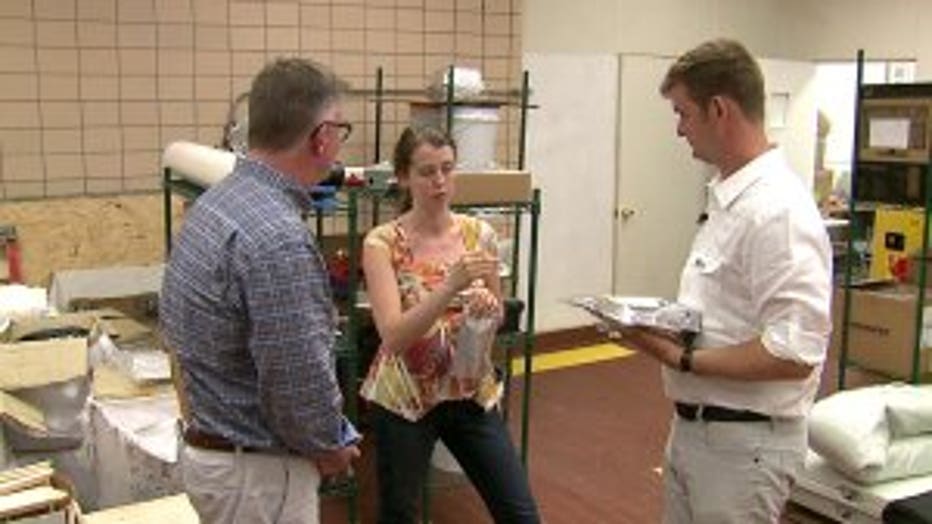
Slava and Vera Strogolov
Slava and Vera Strogolov think they've cracked the case: bees are digesting too many antibiotics.
"We saw that the problem is with the gut -- so how do we fix the gut?" Strogolov asked, already knowing the answer.
That answer is probiotics.
Why are bees ingesting antibiotics in the first place? Bee keepers are trying to keep them healthy and safe from anything that can make them ill.
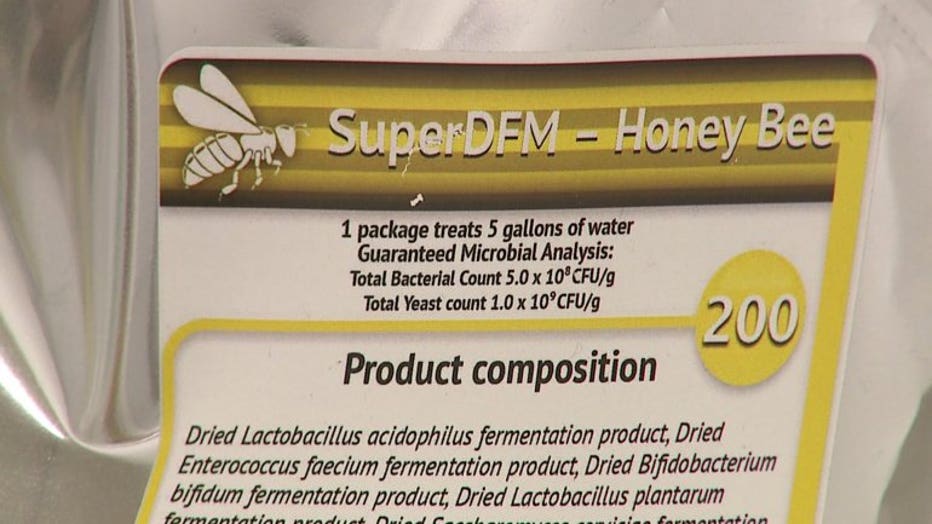
Bees, as it turns out, don't like bad stuff in their stomach any more than humans do and yes, bees can get diarrhea. Often, that diarrhea is a sign of a very serious condition in bees called American foulbrood. If untreated, foulbrood can destroy not only whole hives, but entire bee yards. At some point, the situation is so bad, bee keepers are forced to burn down the entire colony.
Strogolov has seen this happen.
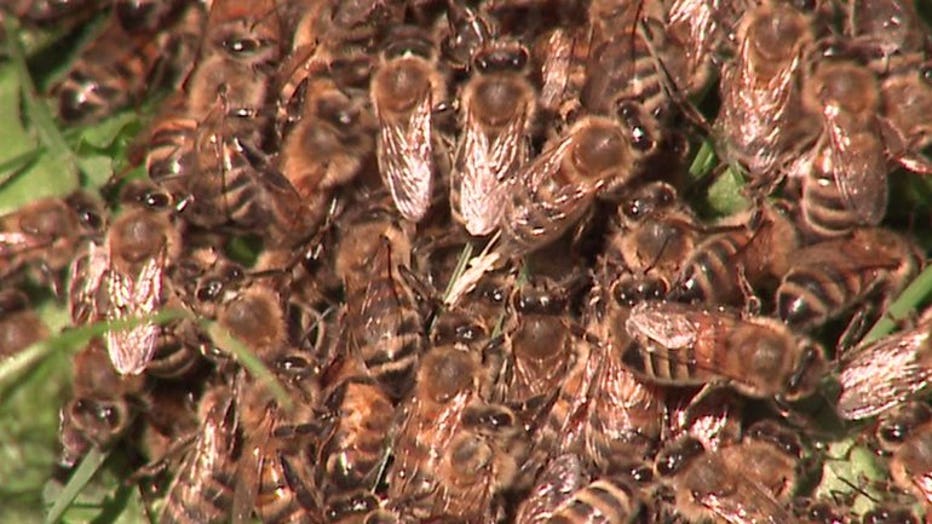
Honey bees
"The only way to get rid of it is to take gasoline and light a match. It's just agonizing to see this," Strogolov said.
Strogolov, a microbiologist, and his wife Vera (who is close to getting her PhD in biology) started Strong Microbials and first specialized in products that would keep livestock feed fresh after it was harvested. They soon expanded into developing ways to make feed for swine and poultry healthier.
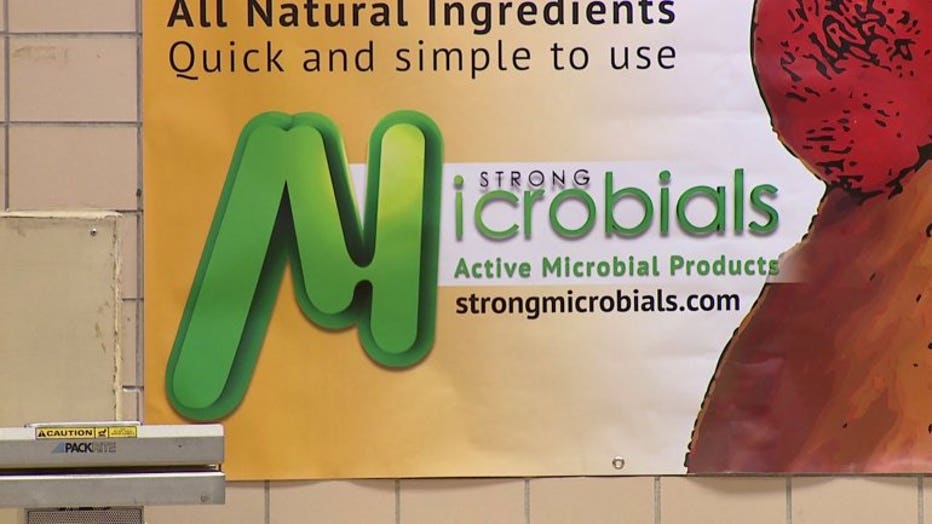
Strong Microbials
When Strogolov read about the dying bee population (the USDA estimates American bee keepers lost 44 percent of their colonies this past year) a light bulb went off.
"Ah, they're eating the poison. If you eat the poison, you have to fix what's inside the gut. You have to neutralize the poison and if you can't do that, you have to fix what's left," Strogolov said.
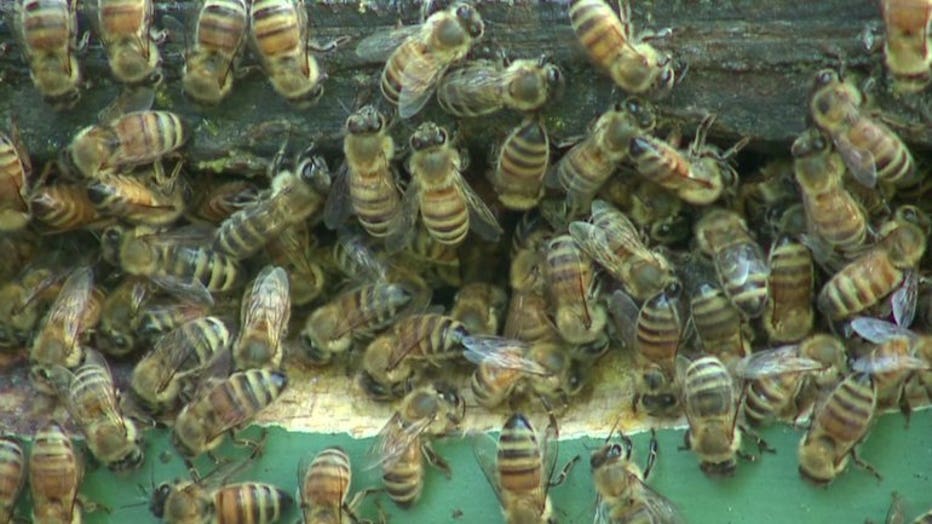
Honey bees
He figured he could come up with an all-natural probiotic, basically "good" bacteria to combat the "bad" bacteria bees are getting from antibiotics and a pest called the varroa mite.
So is he on to something?
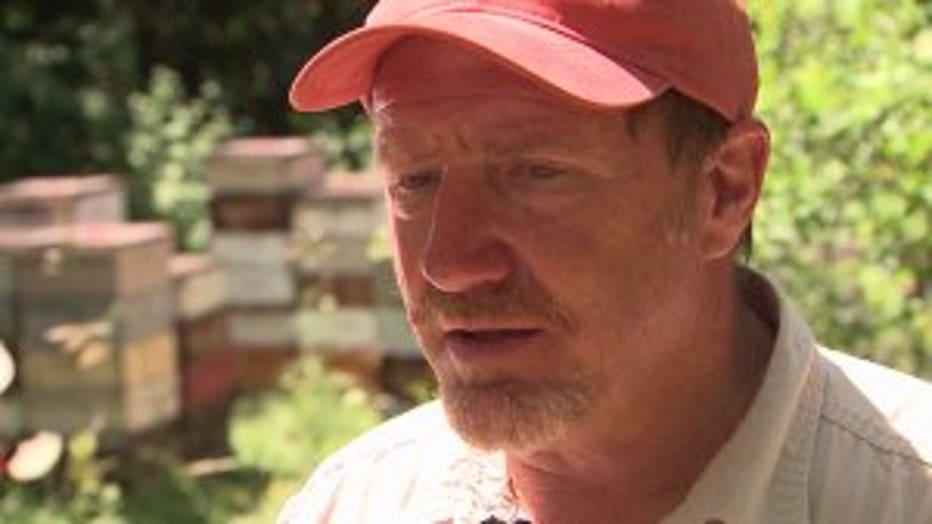
Chris Werner
Chris Werner, owner of Indian Summer Honey Bee Farm in Germantown, says he just might be.
"He may very well be," said Werner, who's used Strogolov's product in small doses. "I'm glad to see there's people like him out there developing products and people who do take the time to gamble to see if this product will work. If it does, and it keeps bees healthier, that's wonderful."
It's not just the honey industry at stake in this battle. Honey bees are used across the world to pollinate crops.
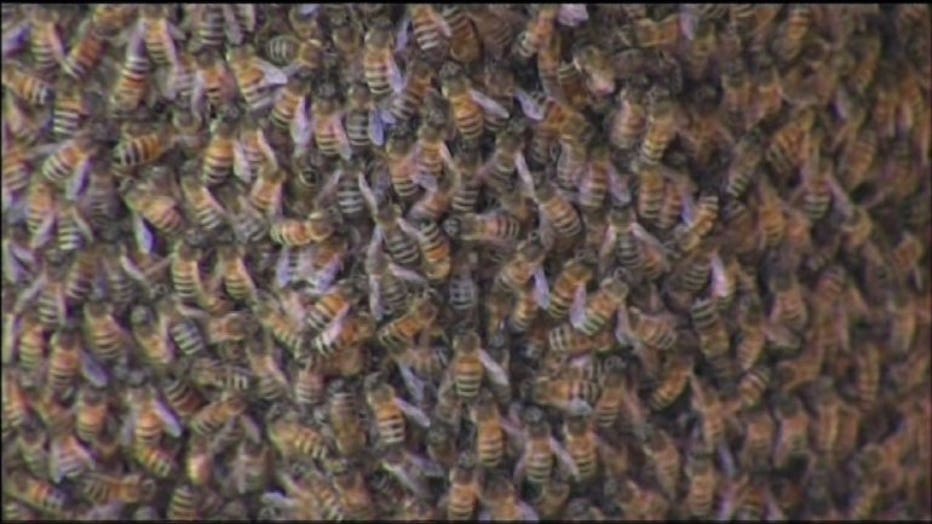
Honey bees

